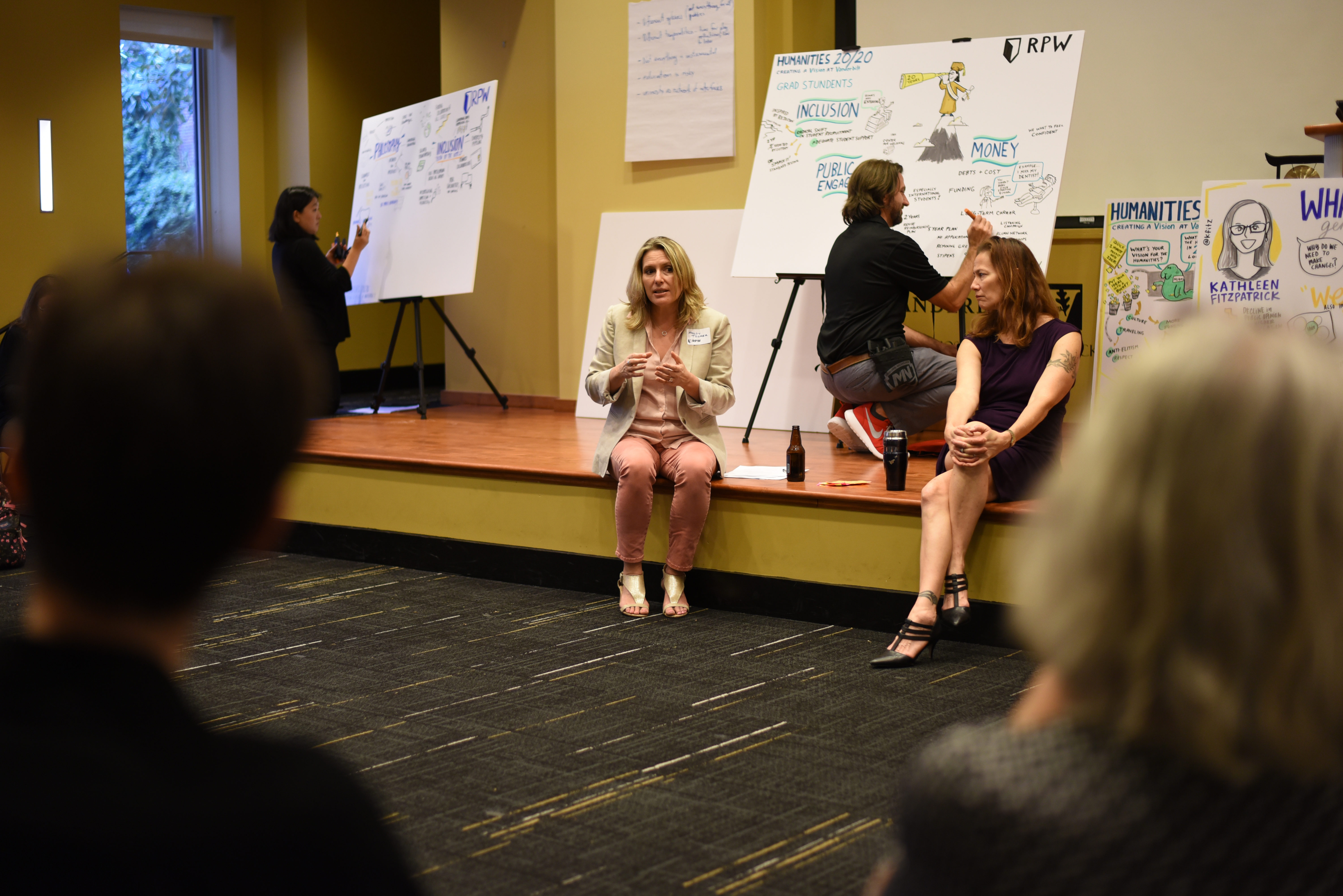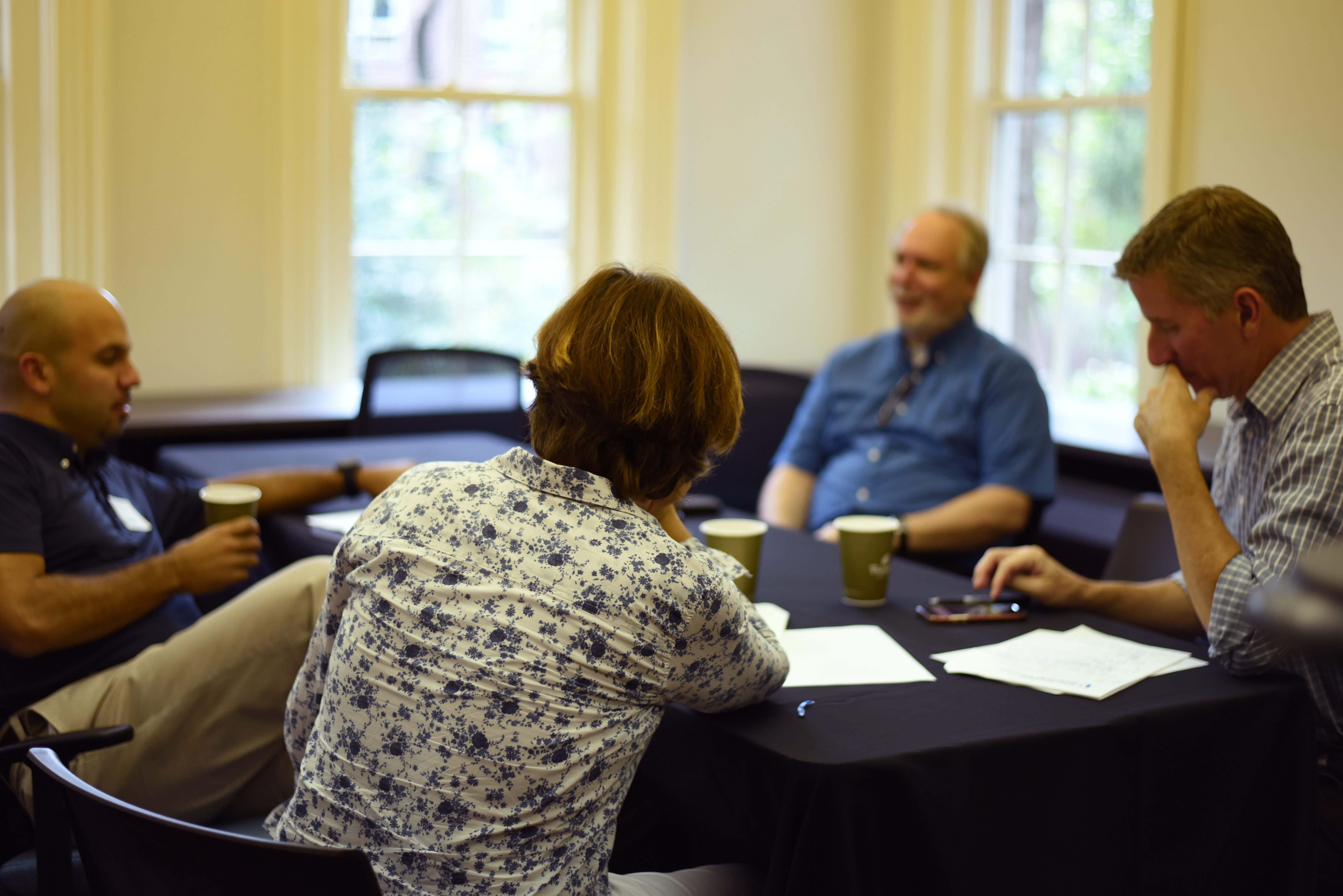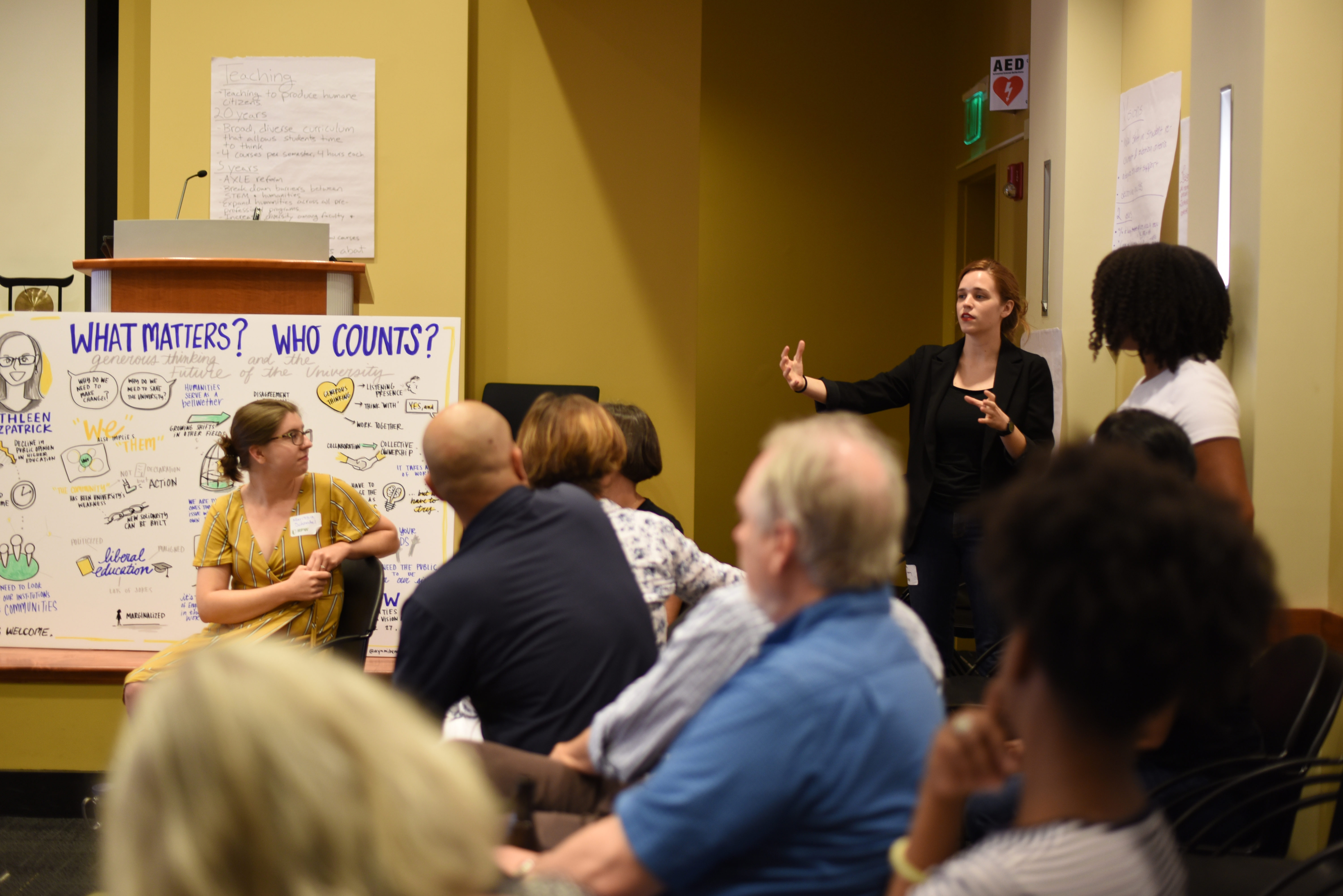Humanities 20/20 Conference Generates Vision for Future of Humanities at Vanderbilt
What is the future of the humanities at Vanderbilt? That question was top of mind for Holly Tucker, Mellon Foundation Chair in the Humanities and Professor of French, as she planned this year’s Humanities 20/20 mini-conference. Hosted by the Robert Penn Warren Center for the Humanities, which Tucker directs, the event brought together 80 faculty and graduate students to brainstorm both short- and long-term ways to support and promote the humanities at Vanderbilt and beyond. Participants came from 18 departments at four schools (Arts and Science, Divinity, Peabody, and Blair), as well as several centers.
Tucker deliberately structured Humanities 20/20 as an interactive event—she didn’t want attendees to watch passively while speakers shared a succession of PowerPoints. Rather, she wanted to create an opportunity for participants to generate a meaningful vision for the future: a gathering not just of people, but of passions and ideas.

“As the first new director of the Robert Penn Warren Center in over thirty years, I am keen to develop a strategic plan that will help direct our priorities. But this is not something I could do alone, especially not for a center that has such a long and wonderful history of collaboration,” Tucker said. “[The concept of] ‘20/20’ seemed a great way to play on the timeliness of the questions we’d be asking about our shared vision for the immediate term—the year 2020—and over the long term—the next 20 years.”
The mini-conference began with a keynote from Kathleen Fitzpatrick, Professor of English and Director of Digital Humanities at Michigan State University. Fitzpatrick, who is also the author of the book Generous Thinking: A Radical Approach to Saving the University, spoke on the topic of “What Matters? Who Counts?”
Attendees then dispersed for extended brainstorming sessions on “What’s Next?” Graduate students gathered in one part of campus; faculty in another. The groups used sticky notes, artwork, and freewheeling discussion to express their ideas about what the humanities are, why they matter, and how to ensure that they continue to thrive at Vanderbilt and beyond.

Sophia Clark, a graduate student in the Department of German, Russian, and East European Studies, appreciated the opportunity to examine her own assumptions about her area of study.
“Humanities 20/20 required me to articulate in front of my colleagues what I value deeply about my education and how I see these values being integrated into the humanities and the larger university,” she said.
After the breakout, faculty and graduate students reassembled to present and further refine their ideas. For Fernando Varela, a fellow in the Center for Second Language Studies, this dialogue across roles was particularly helpful.
“The future of the humanities depends on collaboration across hierarchies and generations,” he said.

John Geer, Ginny and Conner Searcy Dean of the College of Arts and Science, has allocated $25,000 for the Robert Penn Warren Center and the Center’s Advocacy for the Humanities Working Group to implement ideas inspired by Humanities 20/20. The working group is co-chaired by Associate Professor and Chair of Theatre Leah Lowe and Associate Professor and Chair of Communication Studies Paul Stob.
“There is a lot of excitement on campus regarding the humanities, their value, and their direction going forward. That excitement, combined with the support from Dean Geer, will allow us to chart a clear course for humanities research and education at Vanderbilt in the future,” Lowe said.
The Robert Penn Warren Center will use some of the Dean’s allocation to fund immediately actionable ideas generated at Humanities 20/20. These ideas center around three themes: career diversity and development for graduate and undergraduate students, humanities-led solutions to real-world problems, and community partnerships. The Advocacy for the Humanities Working Group will use the remaining money to test long-term solutions for advancing the humanities.
“We’ll be collaborating with faculty and students at Vanderbilt and at colleges and universities undertaking novel efforts in the humanities,” Stob said. “The goal for the end of this year is to provide documentation about how Vanderbilt can promote, embrace, and nurture the changing nature of humanities scholarship in the coming years.”
Assessing the event, Holly Tucker felt inspired and grateful.
“This was an example of our university community at its very best,” she said. “The sense of generosity, goodwill, commitment, and excitement was palpable. Going forward, the work of the Robert Penn Warren Center—and the broad impact that we expect it will have at Vanderbilt and beyond—will be deeply informed by the collaborative wisdom we generated at the conference. The conference may be over, but the real work is just getting started!”
Visit the Robert Penn Warren Center for the Humanities website.
